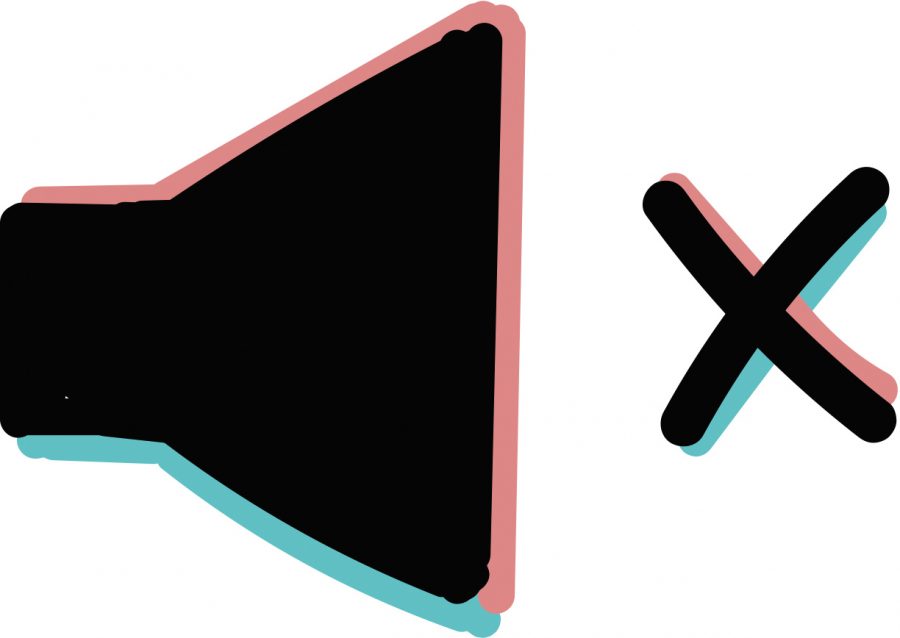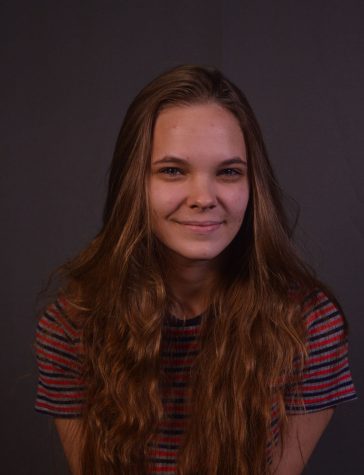Silenced: A look into social media’s shady censorship
Photo by A. Doherty
May 27, 2021
The world is constantly changing around us, and the events that occur in our world help shape our society. In a country such as ours, with the freedoms that we have, our civilians have proven to be quite outspoken—which isn’t a bad thing; everyone should feel safe enough to speak honestly and openly about something they care about, which is one of the things social platforms are most commonly used for. Social media sites such as Facebook, Instagram, and TikTok are all well-loved sites that people use as both creative and social outlets. The problem that is arising is sometimes these platforms, TikTok especially, can’t always be relied on to uphold these values. Far too frequently, creators have been punished for discussing topics that the app has deemed “too controversial.” Topics such as sex education, racism, sexism, homophobia, and sexual assault are topics that are censored the most. Some may argue that this is an app originally directed towards kids, and that serious topics such as these wouldn’t be appropriate to discuss on this platform. However, these topics are far too important (and relevant) to be shelter from children. Exposure to these topics can help kids grow up with a better understanding of the world and of each other.
The censorship occurring on TikTok shows up in a variety of ways, in a variety of severity. A small but very common occurance involves video captioning. This is a feature established to make videos viewable by users who may be deaf or hard of hearing. Although TikTok comes with auto-captioning, making it easier to flag and regulate videos containing what the algorithm considers “trigger words,” most creators type out their own captions, being sure to self-censor these words ahead of time to prevent being penalized while still looking out for the deaf community. Changing spelling, using symbols in place of letters, or abbreviating certain words and phrases is one of the only ways creators have found they are able to discuss a topic successfully and without consequence.
Creators have also had their videos taken down, their accounts suspended, or in most cases, been shadowbanned. As mentioned before, creators recognize when they’ve been punished when they notice that the amount of traction their videos get is being regulated, meaning that their videos are deliberately being hidden from sight to hinder their performance.
Many users have experienced shadowbanning, but most have convinced themselves that this punishment doesn’t really exist, that popularity on this app has more to do with luck and cannot be controlled. However, TikTok’s guidelines admit that, “[…]we may reduce discoverability, including by redirecting search results or limiting distribution in the ‘For You’ feed,” proving that it is well within TikTok’s ability to silence creators in this way.
Many have utilized this platform to raise awareness for numerous political issues such as the Black Lives Matter and Stop Asian Hate movements. Many creators discussing instances of police brutality and verbal and physical assault on people of color have struggled to put a spotlight on these issues, often begging viewers to interact with their videos in the hope that their work will be distributed more throughout TikTok’s “For You” page where all of the app’s videos are distributed. Political topics such as these are not new to this app, which might lead some to believe there could be some underlying biases in TikTok’s foundation.
Another example is creators who use their platforms to educate their followers on safe sex and anatomy.
“We recognize that some content…could be in the public interest. Therefore, we may allow exceptions under certain circumstances, such as educational, documentary, scientific, or artistic content…,” TikTok’s guidelines state.
Despite this, creators whose accounts are centered around informing viewers about sex education have experienced trouble with their content being censored. One way is by banning related hashtags detailing the topics being discussed, something that happens to all kinds of subjects.
It is both disappointing and frustrating to see a social media platform this universal being run in a very biased and stigmatized way. Social media is supposed to be a place where people of all ages should feel safe and comfortable, to be able speak freely and passionately. I can’t be the only one who sees the irony that a platform like this —dedicated to giving its users a voice— seems to be the entity actually taking it away.




